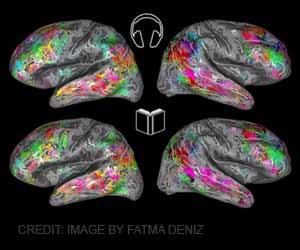Critical periods in early-life learning or early-life experience, although not expressed or remembered, can influence adult life behavior.

‘Using learning and environmental interventions during a critical period -a developmental stage during which the nervous system is especially sensitive to environmental stimuli- may significantly help to address learning disabilities.’





"What our findings tell us is that children's brains need to get enough and healthy activation even before they enter pre-school," explains Cristina Alberini, a professor in NYU's Center for Neural Science, who led the study. "Without this, the neurological system runs the risk of not properly developing learning and memory functions." The other authors of the study, conducted in collaboration with the Icahn School of Medicine at Mt. Sinai, included: Alessio Travaglia, a post-doctoral researcher at NYU; Reto Bisaz, an NYU research scientist at the time of the study; Eric Sweet, a post-doctoral fellow at the Icahn School of Medicine at Mt. Sinai; and Robert Blitzer, a professor at the Icahn School of Medicine at Mt. Sinai.
In their study, which appears in the journal Nature Neuroscience, the researchers examined the mechanisms of infantile memory in rats-i.e., memories created 17 days after birth. This is the equivalent of humans under the age of three and when memories of who, what, when, and where --known as episodic memories-- are rapidly forgotten. The phenomenon, referred as to "infantile or childhood amnesia," is in fact the inability of adults to retrieve episodic memories that took place during the first two to four years of life.
In addressing this matter, Alberini and her colleagues compared rats'' infantile memory with that when they reached 24 days old-that is, when they are capable of forming and retaining long-term memories and at an age that roughly corresponds to humans at six to nine years old.
The episodic memory tested in the rodents was the memory of an aversive experience: a mild foot shock received upon entering in a new place. Adult rats, like humans, remember unpleasant or painful experiences that they had in specific places, and then avoid returning to them.
Advertisement
The first set of results was not surprising. The authors found infantile amnesia for the 17 day-old rats, which showed avoidance of the "shock" compartment right after the experience, but lost this memory very rapidly: a day later these rats quickly returned to this compartment. In contrast, the rats exposed to the shock compartment at 24 days of life learned and retained the memory for a long time and avoided this place-revealing a memory similar to that of adult rats.
Advertisement
The findings raised the following question: what is occurring-neurologically-that explains why memories are retained by the younger rats only in a latent form but are stored and expressed long-term by older ones? Or, more specifically, what occurs during development that enhances the ability to form lasting memories?
To address this, the scientists focused on the brain's hippocampus, which previous scholarship has shown is necessary for encoding new episodic memories. Here, in a series of experiments similar to the box tests, they found that if the hippocampus was inactive, the ability of younger rats to form latent memories and recall them later by reminders as they got older was diminished. They then found that mechanisms of "critical periods" are fundamental for establishing these infantile memories.
A critical period is a developmental stage during which the nervous system is especially sensitive to environmental stimuli. If, during this period, the organism does not receive the appropriate stimuli required to develop a given function, it may be difficult or even impossible to develop that function later in life. Well-known examples of critical period-based functions are sensory functions, like vision, and language acquisition.
The study shows that there is a critical period for episodic learning and that during this period the hippocampus learns to become able to efficiently process and store memories long-term. "Early in life, while the brain cannot efficiently form long-term memories, it is ‘learning' how to do so, making it possible to establish the abilities to memorize long-term," explains Alberini. "However, the brain needs stimulation through learning so that it can get in the practice of memory formation-without these experiences, the ability of the neurological system to learn will be impaired."
These studies, the researchers observe, suggest that using learning and environmental interventions during a critical period may significantly help to address learning disabilities. The research was supported, in part, by grants from the National Institute of Mental Health (R01-MH074736, R01-NS072359), part of the National Institutes of Health, and the Geneva-based Agalma Foundation.
Source-Newswise














